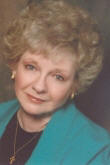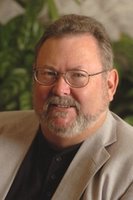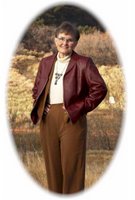BJH: About Agents

A number of questions routinely come up about agents, but one the most frequent is, "How do I know when I'm ready for (or need) an agent?"
My reply to that would usually be, "When you have an offer on your book." When a publisher actually makes you an offer and indicates he's ready to go to contract, then you seriously need to consider working with an agent. The problem at that point may well be that you can't find one (a good one) soon enough. To complicate matters, though, if you start shopping around for an agent too soon, before you get an offer, the fact that you don't have an offer can hinder your chances. It's not always as simple as "have contract, sign with agent." Although some agents will still consider a writer who's yet unpublished, who is just starting out to build a career, more won't. And as I understand it, it's becoming more and more difficult to find an agent–a good one–unless you at least have a contract practically in hand.
Remember that, just as you will want to be highly selective about the agent you ultimately work with, so agents need to be selective, too. If you look at this from the agent's point of view, it only makes sense to choose your clients carefully. For most agents–though not all–this is their livelihood, a full-time job. Like us, they have mortgages and utilities to pay, in addition to educating their children and putting food on the table. So it's only natural that they would be interested in taking on writers who have a few publishing credits or who are at the stage where they've received definite interest from a publisher.
Agents are also interested in working with writers who aren't "one-book-wonders." A good agent expends a considerable amount of time and effort on selling a project and then negotiating the contract, including a good marketing plan and all the other issues involved in a publishing deal. Unless an agent is convinced that both of you stand to make a killing on your "one book," they're not likely to be too enthusiastic about working with someone who's going to toss a single title into the market and then go back to teaching school or whatever he does for a "real job."
Another situation that might make you go in search of a good agent would be if you're already a published author, perhaps even multi-published, but you're in the midst of a sticky dilemma with your publisher. You don't want to burn any bridges by becoming adversarial (or violent), but you also realize you're out of your league when it comes to resolving the problem. As an author, you always want to be the "good guy" with your publisher. Let the agent wear the hard hat and handle the difficult, awkward situations. They're experienced at doing just that, and most authors don't have the stomach for it.
What do you look for in an agent? It varies, depending on what kind of a working relationship you want–and, to some extent, what kind of a writer you are. Some writers are high maintenance and want (or need) someone who will function as both manager and agent. Other writers want little more than someone to negotiate their contracts and make certain all the "t’s" are crossed. Others want editing assistance and a good bit of editorial input from their agents.
Before you begin to actively look for your agent, take time to figure out, as best as you can, what kind of a relationship you want and what you believe you need, given the type of writer you are. There are some basics you have a right to expect from an agent: (1) That he/she be well-acquainted with the market, its editors and publishers, so that she's aware of who's looking for what and will know where to take your manuscripts instead of wasting everyone's time with circulating them to houses that don't even publish what you're writing or are overstocked with similar projects. (2) That he will avoid publishing houses known to be "unstable," who treat their authors like second-class citizens, or who aren't interested in the kind of material you like to write. (3) That she will maintain frequent contact with you to keep you in the loop as to what's going on with your projects. (4) That he will work for you rather than the publisher, while at the same time will maintain good relationships with the various publishers. You don't want to work with an agent who's viewed as "the enemy." (5) That she will see to it that your advances and royalties are paid on time and accurately, and that your publishers live up to all elements of your contracts. (6) That he will work on long-range planning with you to help you achieve your career goals, while also advising you if he believes your ideas are unreasonable or faulty, your goals too small or too large. (7) That she's well-experienced in all areas of the business of publishing and qualified to negotiate legal contracts to your benefit, as well as offer professional advice to you on career issues. (8) That he responds positively to your request to see at least a partial list of his clients and the publishers with whom he's placed projects during the past year, and that he offers two or three professional references for your review. (9) That she will consult you before accepting any offers on your behalf or making any significant business decisions for you. (10) That he is genuinely enthusiastic about and interested in your work so he can represent you with confidence. An agent who's ho-hum about a client doesn't deserve that client–and you most definitely do not want to be that client.
You might want to avoid an agent who is not enthusiastic about the genre you write in or about your style of writing. In other words, if you want to write romantic suspense and an agent specializes in literary fiction and general nonfiction, and admits that her personal reading taste disdains your genre, that's a fairly obvious red flag.
Also, if an agent wants to charge you a "reading fee" or an "evaluation fee" before committing to represent you, run...don't walk...to a different agency. Reading fees are unprofessional, and no reputable agent resorts to them.
If a prospective agent has been an agent for only six months and comes out of an occupation that is absolutely foreign to publishing or writing in general–I suggest that you let him gain two or three more years of experience and learn the business before you consider him.
Once you've found the agent you think you might like to work with, interview her–and speak with at least two or three of her author-clients to see how satisfied they are. It's also a good idea to inquire of one or two editors who have worked with her. Find out how they view her as a professional. Caveat: if an editor raves too much about a particular agent, if you sense that that agent might be more a publisher's darling than an author's advocate, you might want to take a second look before signing on with her. What you want is an agent who's respected by the industry, and while known to be an advocate for her clients, is also reasonable and professional in all her dealings.
You're going to have obligations, too, so you should be familiar with at least some of them and be willing to meet them. (1) Keep all details of your contracts: the negotiating process, financial matters–everything–between you and your agent. Sharing financial or other confidential information with your author-friends can be deadly to your author-agent relationship. Be discreet. Very discreet. (2) Refer any interested or prospective publishers to your agent. Don't become involved in discussions or negotiations on the side. (3) Make certain that her commissions are paid on time and are representative of your agreement with her. (4) Let your agent know right away if you foresee any change of direction in your writing or even changes you'd like to make. (5) Occasionally talk with your agent about your ideas for new works and get her input on those ideas. Let her help you plan your career long-range and carefully, rather than trying to keep up with your impulses. (6) Don't attempt to "over-sell" yourself. Be objective and totally honest with your agent about what you see as your strengths and weaknesses. If your abilities don't live up to your aspirations, it's better that your agent find this out from you, not from your publisher. And don't set yourself up as a literary snob or a leader of the intelligentsia. I promise you, you won't impress her. Don't ever try to con a good agent unless you sense she needs a good laugh–they know when you're trying to sell yourself instead of good writing. (7) Listen to his advice. You may think you know as much or more about the business of writing, but you probably don't. Trust your agent. If you do come up against a point of disagreement, discuss it openly and honestly with him until you can reach a decision or solution that satisfies both of you. (8) If you should encounter some sort of a difficulty or problem with your publisher, let your agent know right away.
Something else writers want to know about this business of working with an agent: Doesn't this mean you're left with no possibility of a one-on-one working relationship with your editor and/or publisher? No. By no means. Not unless you want it that way. I have plenty of contact with my editor and others involved in getting my books to readers, and most of the authors I've talked with say the same. There are a few authors who prefer not to have a "relationship," to stay far removed from the publishing house, but I can't imagine working this way.
Obviously, for the sake of time I can’t begin to cover all the specifics of a subject this complex in a blog entry. But I have tried to touch on most of the elements I consider essential, the things that go into a mutually enjoyable and beneficial author-agent relationship. That said, you might have yet another question by now: All the above sounds great, if somewhat idealistic, but in reality, are there agents like this out there? Do they even exist?
I can vouch for the fact that they do. It's been my good fortune to work with the best in the business, and a good friend as well. Frankly, I wouldn't want to face another day of publishing without Janet Kobobel Grant. There are still a few heroes out there, and Janet is one of them.
Good luck on finding yours.
BJ Hoff is the author of A Distant Music, the American Anthem, and the Emerald Ballad.
http://www.bjhoff.com
http://www.bjhoffgracenotes.typepad.com




















